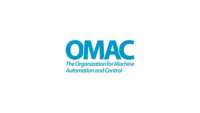* Revenues for Q2 2010 totaled 136.1 million Euro, an increase of 26.9% compared to revenues from core business in the same period the year before [Q2 2009: 107.2 mln]. The increase is 3.1% compared to the consolidated figures [Q2 2009: 132.0 mln].
* Normalized EBITDA was 21.1 mln, or 15.5% of sales [Q2 2009: 12.1 mln from core business]. Consolidated EBITDA was 13.6 mln, or 10% of sales [Q2 2009: 28.0 mln].
* Normalized operating profit (EBIT) was 15.1 mln, or 11.1% of sales [Q2 2009: 6.5 mln from core business]. Consolidated EBIT was 7.6 mln, or 5.6% of sales [Q2 2009: 21.6 mln].
* One-off costs associated with a recovery plan for the Stork Pension Fund, amounting to 7.6 mln, are included in the consolidated income statement for Q2 2010.
* Consolidated net result was 0.1 mln for Q2 2010 [Q2 2009: 17.3 mln].
* Operational cash flow remains strong and net interest bearing debt is 284.1 mln at the end of Q2 2010 [Q2 2009: 349.4 mln].
* The order book continues to grow as a result of improved market conditions and was 125.3 mln at the end of the quarter [Q2 2009: 76.1 mln].
Overall, the company said in a statement, it was another good quarter. Revenues from core business totaled 136.1 mln, an increase of 5.6% compared to the previous quarter and 26.9% compared to Q2 2009. For the second quarter in a row, the company delivered on its long-term target of a 10 to 12% return on revenues. It is expected that the Q3 results will be marked by the summer holiday period, when business activity is traditionally at a lower level. However, Marel fully expects to reach its target of 10 to 12% return on revenues for the year as a whole.
A statement from Theo Hoen, CEO, read as follows:
“We are very pleased to have achieved our long-term Return on Sales (ROS) target of 10 to 12% for the second quarter in a row, thanks to our strict focus on cost control and our strong position in a recovering and growing market. We believe that this level of performance is sustainable and can serve as the baseline for further growth moving forward. Our challenge now is to reinforce the company’s position as market leader and, at the same time, to increase profitability. The underlying demand in the food industry is rising and automation is increasing at a robust rate in developing countries such as China. What’s more, we are benefitting from our strategy of having sustained our level of investment in innovation throughout the crisis.
“Our product development pipeline shows a healthy number of new projects in progress and I am proud of the success we have had with our latest innovations, including the StreamLine, RevoPortioner and the SensorX. The performance of the SensorX team especially, is an excellent example of the teamwork we have in our product centers. Furthermore, new integrated solutions that combine the technologies of the different business units in our group are clearly creating more value for our customers and contributing nicely to our Q2 results. I feel that we are well on our way to creating a healthy and sustainable company that will play a major role in the protein industry for many years to come.”

